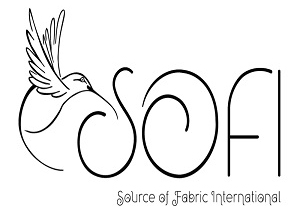If you’re diving into a sewing project or simply looking to refresh your fabric stash, finding the right cotton fabric can make all the difference. Cotton is a versatile and breathable material, perfect for everything from clothing to home decor. With so many options out there, knowing where to buy quality cotton fabric can save you time and ensure you get exactly what you need.
Understanding Cotton Fabric
Cotton fabric is a popular choice for many projects due to its wide range of uses. This fabric comes in various types, each with unique qualities. Understanding these types helps you select the ideal fabric for your needs.
Types of Cotton Fabric
- Cotton Broadcloth: This tightly woven fabric is smooth and lightweight. It works well for shirts and dresses.
- Cotton Sateen: With a glossy finish, sateen provides a luxurious feel. It’s perfect for upscale garments and home textiles.
- Cotton Muslin: This plain weave fabric is lightweight and inexpensive. It’s often used for patterns and prototypes in sewing.
- Cotton Canvas: Known for its durability, canvas is used in bags and heavy-duty items. It withstands wear and tear well.
- Cotton Voile: This sheer, lightweight fabric is ideal for curtains and delicate garments. It drapes beautifully.
- Cotton Flannel: Soft and warm, flannel is used for pajamas and blankets. Its brushed surface adds extra comfort.
Benefits of Cotton Fabric
Breathability: Cotton fabric allows air to flow, keeping you cool during warm weather.
Comfort: Softness makes cotton comfortable against the skin, suitable for everyday wear.
Versatility: Cotton adapts well to various projects, from clothing to home decor.
Easy Care: Most cotton fabrics are machine washable and durable, maintaining their quality after washing.
Eco-Friendly: As a natural fiber, cotton is biodegradable and more sustainable than synthetic options.
Hypoallergenic: Cotton is gentle and less likely to irritate sensitive skin, making it perfect for all ages.
Where to Buy Cotton Fabric
Finding quality cotton fabric involves exploring several options. Each source offers unique benefits tailored to different needs.
Local Fabric Stores
Local fabric stores provide a hands-on experience when purchasing cotton fabric. You can touch and feel various textures, ensuring you select the right option for your project. Many stores offer knowledgeable staff who can help you choose fabrics based on your specific needs. Common fabrics available include cotton broadcloth, muslin, and flannel. These stores often carry seasonal selections, allowing you to find unique patterns and colors. Shopping locally supports small businesses, enhancing the community.
Online Retailers
Online retailers offer an extensive variety of cotton fabric options accessible from home. Websites such as Fabric.com, Joann.com, or Amazon.com provide a broad selection of fabrics with detailed descriptions and customer reviews. This method allows for browsing multiple brands and styles, from canvas to sateen. Keep in mind that shipping times and return policies vary, so check these details before making a purchase. Use search filters to narrow options by material, color, or pattern, making the process efficient and straightforward.
Craft and Hobby Stores
Craft and hobby stores frequently carry a selection of cotton fabric suitable for various projects. Stores like Michaels and Hobby Lobby offer fabric, along with tools and supplies needed for sewing. These locations often run promotions or discounts, allowing you to purchase fabrics at lower prices. Look for remnants or off-cuts, which can yield excellent savings. In-store staff can assist in choosing the right fabric for your DIY projects, ensuring you find the best elements for your crafts.
Specialty Cotton Fabric Shops
Specialty cotton fabric shops focus exclusively on cotton products, offering high-quality material and unique designs. These shops provide an extensive range of cotton types, such as organic cotton, quilting cotton, and more. Such specialty stores often feature fabric sourced from specific manufacturers, providing options that may not be available elsewhere. Check for shops locally or online, as many now offer shipping services. Engaging with specialty retailers can lead to finding one-of-a-kind fabrics ideal for particular projects.
Tips for Buying Cotton Fabric
Consider Fabric Quality
When buying fabric, assessing quality is crucial. High-quality cotton feels soft and has a smooth finish. Look for fabric that has a tight weave to ensure durability. Check the fabric weight; lighter cotton is great for summer clothes while heavier cotton works well for jackets. Inspect for any unevenness or flaws in the fabric. Reading labels can provide information about fabric type and care instructions, helping you make informed choices that fit your projects.
Check for Patterns and Colors
Choosing the right patterns and colors enhances your projects significantly. Select colors that complement your design and match the intended purpose of your item. Consider seasonal preferences; bright shades and floral patterns suit spring and summer, while dark hues work better for fall and winter. If you’re working on multiple pieces, coordinate patterns across different fabrics for a cohesive look. Swatches can help visualize how fabrics will coordinate together before making a purchase.
Compare Prices
Price comparison is key in purchasing cotton fabric. Prices can vary widely based on quality and source. Visit multiple stores, both online and local, to gauge the average costs. Check for sales or bulk discounts, which can save money on larger projects. Many online retailers offer price match policies, making it easier to find the best deals. Establishing a budget helps streamline decisions and avoid overspending while still obtaining high-quality fabric.
Common Issues When Buying Cotton Fabric
Buying cotton fabric comes with various challenges. Understanding these common issues helps ensure a smooth purchasing experience.
Dealing with Poor Quality
Poor quality fabric can ruin your projects. When selecting cotton fabric, check for specific characteristics. Evaluate softness by feeling the fabric; good quality cotton should feel smooth against your skin. Inspect the weave; tight, even weaves indicate durability and strength. Examine the weight; heavier fabrics tend to be more robust, while lighter ones may be suitable for delicate items. Ask yourself if the fabric drapes well; fabrics that hold their shape perform better in finished items. Always conduct a burn test when possible. A nice cotton will burn easily and turn into ash, while lower quality nylon blends may melt or leave behind plastic.
Handling Misleading Descriptions
Misleading descriptions can lead to poor buying decisions. Always read product details carefully. Check for information on fiber content; 100% cotton should be the standard, but blends may contain polyester or other materials. Look for details on weight to understand the fabric’s heaviness; lighter weights work well for shirts, while heavier weights suit curtains. Evaluate the pattern and color descriptions; sunlight may alter colors, so be cautious with images. If purchasing online, read customer reviews to gauge others’ experiences. Reviews often highlight the accuracy of descriptions and provide insight into the fabric’s actual quality.
Understanding Return Policies
Understanding return policies is essential for smooth transactions. When purchasing cotton fabric, look for details on the return process before buying. Many retailers set specific guidelines for returns; some may only accept unopened products, while others allow returns on cut fabrics. Check if you must pay return shipping fees; this can impact your overall cost. Note the time frame for returns; some stores provide 30 days, while others may offer extended periods. Familiarize yourself with the conditions for refunds; knowing if you receive store credit or cash back aids in planning future purchases. Familiarity with these policies helps you manage expectations and reduces stress after buying.
Conclusion
Finding the right fabric can elevate your projects and enhance your creative experience. By exploring local fabric stores online retailers and specialty shops you can discover a variety of options that meet your needs. Remember to assess fabric quality and consider your design preferences to ensure you make the best choice.
Don’t forget to compare prices and look for sales to maximize your budget. Being mindful of common pitfalls like misleading descriptions and return policies will help you navigate your shopping experience with confidence. With the right approach you’re sure to find the perfect cotton fabric to bring your ideas to life. Happy sewing!
Frequently Asked Questions
What types of cotton fabric are available for sewing?
Cotton fabric comes in various types, each suited for different projects. Common options include cotton broadcloth for everyday garments, sateen for a luxurious finish, muslin for mock-ups, canvas for durable items, voile for light apparel, and flannel for warmth. Choosing the right type depends on your specific project needs.
Why is cotton fabric a popular choice for sewing?
Cotton fabric is popular due to its breathability, comfort, versatility, and easy care. It’s hypoallergenic and eco-friendly, making it ideal for a wide range of applications, from clothing to home decor. Its softness and durability also contribute to its widespread use in sewing projects.
Where can I buy quality cotton fabric?
You can purchase quality cotton fabric at local fabric stores, online retailers, craft and hobby stores, and specialty cotton fabric shops. Local stores offer personal assistance, while online options provide a broader selection. Specialty shops focus on unique, high-quality cotton fabrics, including organic and quilting varieties.
How do I assess the quality of cotton fabric?
To assess cotton fabric quality, check its softness, weave tightness, and weight. High-quality cotton should feel pleasant to the touch, have a tight weave, and possess appropriate weight for your project. Reading product descriptions carefully also helps ensure you’re getting the quality you expect.
What should I consider when buying cotton fabric?
When buying cotton fabric, consider the type, pattern, and color that best fit your project. Don’t forget to compare prices between stores and look for sales or discounts. Understanding your seasonal preferences and coordinating designs can also enhance your final product.
How can I avoid problems when purchasing cotton fabric?
To avoid issues, read product descriptions carefully to verify the fabric’s fiber content and weight. Evaluate fabric characteristics like softness and drape before buying. Additionally, familiarize yourself with return policies to manage expectations and reduce stress if the fabric doesn’t meet your needs.
Can I find organic cotton fabric options?
Yes, many specialty fabric shops offer organic cotton options. Organic cotton is grown without harmful chemicals, making it a more eco-friendly choice. It’s ideal for those seeking sustainable fabric options while still enjoying the benefits of cotton in their sewing projects.


